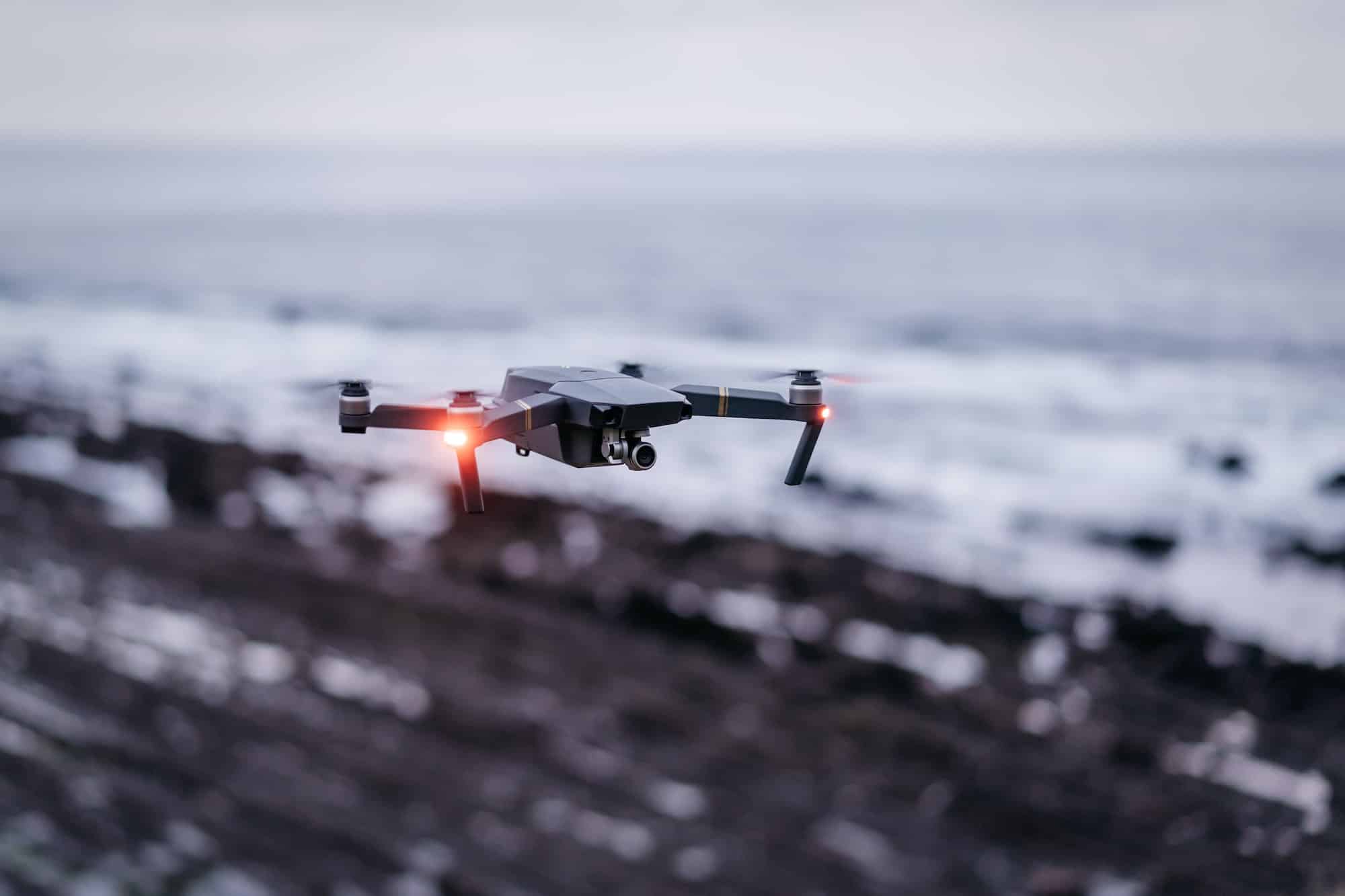Modern technology is rapidly transforming industries worldwide, and the logistic sector is no exception. The advent of autonomous vehicles and drones in the UK logistics industry is bringing paradigm shifts that will redefine the ways in which goods are delivered. Drone deliveries, in particular, have emerged as a key player in the market. In this article, we will explore the role of drone deliveries in shaping the future of the logistics industry in the UK.
The Current Market Share of Drone Deliveries
The concept of drone deliveries is no longer a distant dream in the UK. Recently, several companies have started using drones as part of their logistics operations, both on a testing basis and for regular deliveries. Data released by research institutes indicates a significant increase in the market share of drone deliveries in the UK over the past few years.
Also to discover : Discover chef apron: aprons for everyone in canada
Drones, often referred to as unmanned aerial vehicles (UAVs), are usually small, deployable aircraft that can be controlled remotely or programmed to fly autonomously using onboard systems. The surge in drone usage in logistics can be attributed to their efficiency and the ability to overcome traditional delivery challenges, such as traffic congestion and inaccessible areas.
With more companies recognising the potential benefits of drone technology, the market share of drone deliveries is expected to rise even further in the coming years.
Additional reading : What Innovations Are Making Electric Cars More Affordable in the UK?
The Last Mile Delivery Challenge and Drones
The term ‘last mile’ refers to the final stage of the delivery process, where the product is transported from a hub to its ultimate destination. This is usually the most challenging, costly, and time-consuming part of the delivery journey.
Traditionally, deliveries have been made using manned vehicles, but this approach often struggles with last-mile challenges. These include traffic congestion, inefficient routes, and difficulties accessing remote or difficult-to-reach areas. Drones, on the other hand, can reach their destinations directly by air, bypassing ground-level obstacles and reducing delivery times.
Drone deliveries offer a solution to the last-mile problem, particularly in congested urban areas where traditional delivery methods can be slow and inefficient. By taking to the sky, drones can deliver goods quickly, efficiently, and with minimal environmental impact.
The Role of Data and Technology in Drone Deliveries
In the world of logistics, data is king. The successful implementation of drone deliveries largely depends on the effective use of data and technology. Drone technology incorporates sophisticated systems that use data to optimise the delivery process.
Data comes into play in various stages of the drone delivery process. For instance, drones use GPS data to navigate their routes. Data analytics are used to predict delivery demand and schedule deliveries accordingly. And real-time data monitoring allows logistic companies to track their drones and respond to any issues that may arise.
Moreover, drone technology is continually evolving. Recent advancements include collision avoidance systems, enhanced battery life, and autonomous operations. These developments are making drones increasingly practical and cost-effective for logistics companies.
Autonomous Drones and The Future of Deliveries
The logistics industry in the UK and across the globe is gearing up for a future dominated by autonomous drones. These are drones that can navigate without human input, using sophisticated algorithms and sensor data to avoid obstacles and make deliveries.
The rise of autonomous drones is driven by advancements in artificial intelligence and machine learning. These technologies enable drones to learn from their environment and make decisions based on the data they collect.
In recent years, regulatory bodies in the UK have begun to recognise the potential of autonomous drones and are taking steps to facilitate their use in the logistics industry. This includes updating regulations and providing guidance for companies looking to incorporate drone technology into their operations.
Challenges and Key Considerations for Drone Deliveries
Despite the vast potential of drone deliveries, there are several challenges to consider. Safety is the paramount concern. Drones must be able to operate without posing a risk to people, property, or other aircraft. This requires robust systems for collision avoidance, emergency landing, and failsafe operation.
Another challenge is public perception. For drone deliveries to become commonplace, the public needs to accept drones as part of their daily lives. This includes overcoming concerns about noise, privacy, and the visual impact of drones.
Additionally, regulatory barriers currently limit the widespread use of drones for deliveries in the UK. Existing regulations often restrict drones from flying beyond the line of sight of the operator, which limits their practicality for long-distance deliveries.
However, with ongoing advancements in drone technology and regulatory frameworks, these obstacles are gradually being overcome. Thus, while challenges remain, the future of drone deliveries in the UK logistics industry looks promising.
The Impact of Drone Deliveries on the Supply Chain
As drone delivery technology continues to evolve, impacts on the supply chain are becoming more apparent. Drone deliveries are catalysing changes in the way goods are transported, stored, and delivered, resulting in a more efficient and responsive supply chain.
In traditional logistics, goods are usually transported in bulk to warehouses or distribution centres before being dispatched for delivery. This method often results in long lead times and high inventory costs. With drones, businesses have the opportunity to streamline their supply chains by moving goods directly from the manufacturer to the customer in real-time.
More companies are now transitioning to a decentralised distribution model, with multiple smaller warehouses located closer to customers. This approach, combined with drone deliveries, can significantly reduce delivery times and increase customer satisfaction.
Drone technology also enables real-time tracking of deliveries. This not only improves transparency in the supply chain but also allows for proactive issue resolution. For instance, if a drone encounters a problem during delivery, the issue can be identified and addressed promptly, minimising delivery delays.
One of the key players in this transformation is Amazon, who has been testing drone deliveries in the UK. The company’s Prime Air service aims to deliver packages to customers within 30 minutes of ordering. This is a significant leap forward in terms of delivery speed and customer satisfaction, setting a new standard for the logistics market.
The Sustainability Aspect of Drone Deliveries
The use of autonomous vehicles and drones for deliveries also has significant implications for sustainability. Drone deliveries can be more fuel-efficient than traditional delivery methods, particularly for last-mile deliveries in congested urban areas.
Drones require less energy to transport small packages compared to traditional delivery vehicles. Moreover, as drones fly on the shortest path to their destinations, they help reduce carbon emissions by minimising travel distances.
Delivery drones can also help reduce road traffic and congestion in urban areas. This not only reduces air and noise pollution but also contributes to a more liveable and sustainable urban environment.
However, it’s also important to note that the sustainability of drone deliveries depends largely on how drones are powered. Drones that are powered by renewable energy sources, such as solar or wind, can offer even greater environmental benefits.
Conclusion: Future Trends and the Promising Prospects of Drone Deliveries
The future trends in the UK logistics industry suggest that drone deliveries will continue to grow. As technology continues to advance, drones are likely to become more autonomous, efficient, and robust.
Drones will also play a crucial role in addressing the challenges of last-mile delivery, particularly in urban areas. They will help reduce delivery times, increase efficiency, and reduce logistical costs.
However, the success of drone deliveries will also depend on the evolution of regulatory frameworks. Authorities need to ensure that the regulations facilitate drone usage while addressing safety, privacy, and environmental concerns.
Moreover, public acceptance will also play a key role in the widespread adoption of drone deliveries. As people become more familiar with drones and recognise their benefits, drones are likely to become a common sight in our skies.
In conclusion, while challenges remain, the future of drone deliveries in the UK logistics industry looks promising. Drone technology, coupled with advancements in data analytics and AI, is set to revolutionise the way goods are delivered, bringing significant benefits to businesses and consumers alike. The era of autonomous drones delivering our packages is not too far off, and it is sure to change the face of the logistics industry as we know it.











